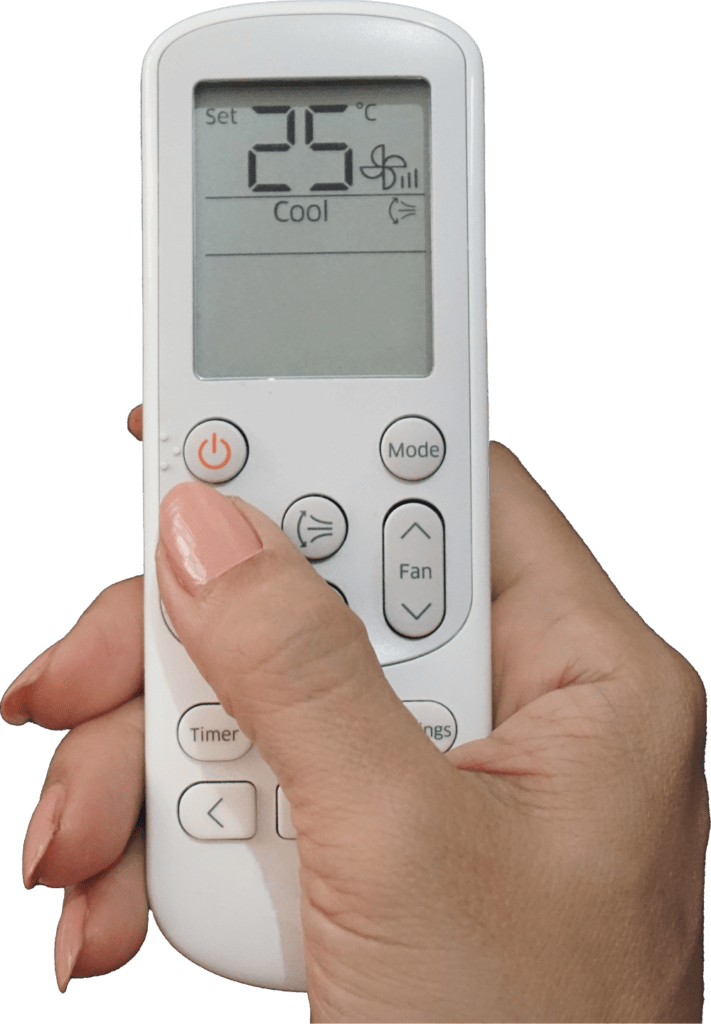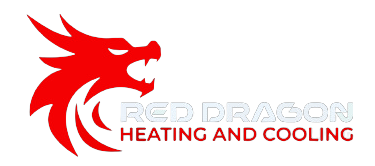- 518.348.9000
- [email protected]
- 117 Van Rd Gloversville,NY 12078
The Ultimate Guide to HVAC Zoning in Fulton and Montgomery Counties: A Red Dragon Heating and Cooling Special
In the quest for the perfect home environment, homeowners are increasingly turning to innovative solutions that offer personalized comfort and energy efficiency. One of the most effective of these solutions is HVAC zoning. In communities like Gloversville, Johnstown, Broadalbin, Mayfield, Fonda, Amsterdam, and Northville, where homes can vary greatly in size, style, and age, HVAC zoning can provide a level of comfort and control that is simply not possible with a traditional, single-zone HVAC system. At Red Dragon Heating and Cooling, we are the leading experts in HVAC zoning installation in Fulton and Montgomery Counties, and we’ve created this comprehensive guide to help you understand the benefits of this advanced comfort technology.
What is HVAC Zoning and How Does it Work?
HVAC zoning is a system that divides your home into different zones, each of which can be heated or cooled independently. This is achieved by installing a series of dampers in your ductwork, which are controlled by thermostats in each zone. When a zone needs to be heated or cooled, the thermostat in that zone sends a signal to the dampers, which open to allow conditioned air to flow into that zone. When the desired temperature is reached, the dampers close, and the conditioned air is redirected to other zones that need it.
An HVAC zoning system typically consists of the following components:
- Zone Control Panel: This is the brain of the system. It receives signals from the thermostats in each zone and controls the dampers in the ductwork.
- Thermostats: Each zone has its own thermostat, which allows you to set the desired temperature for that zone.
- Dampers: These are installed in the ductwork and open and close to control the flow of conditioned air to each zone.
The Benefits of HVAC Zoning
HVAC zoning offers a number of benefits over a traditional, single-zone HVAC system:
- Personalized Comfort: With HVAC zoning, you can customize the temperature of each zone in your home to meet the preferences of your family members. No more fighting over the thermostat! You can keep the living room warm and cozy for movie night, while keeping the bedrooms cool for a comfortable night’s sleep.
- Energy Efficiency: HVAC zoning can save you a significant amount of money on your energy bills. By only heating and cooling the zones that are in use, you can reduce your energy consumption by up to 30%. This is especially beneficial in large homes with rooms that are rarely used.
- Improved System Performance: HVAC zoning can help to improve the performance of your HVAC system by ensuring that it is not overworked. By only heating and cooling the zones that need it, you can reduce the wear and tear on your system and extend its lifespan.
- Increased Home Value: An HVAC zoning system is a desirable feature that can increase the value of your home.
Is HVAC Zoning Right for Your Home?
HVAC zoning can be a great option for many homes in our area, but it’s not the right choice for everyone. Here are some situations where HVAC zoning is an ideal solution:
- Multi-Story Homes: In a multi-story home, heat naturally rises, which can make the upper floors much warmer than the lower floors. HVAC zoning can help to even out the temperature between floors.
- Large Homes with Rooms that are Rarely Used: If you have a large home with rooms that are rarely used, such as a guest room or a formal dining room, HVAC zoning can save you a significant amount of money on your energy bills.
- Homes with Large Windows or High Ceilings: Rooms with large windows or high ceilings can be difficult to heat and cool. HVAC zoning can provide the extra heating and cooling that these rooms need.
- Homes with Family Members with Different Temperature Preferences: If you have family members with different temperature preferences, HVAC zoning can provide the personalized comfort that everyone needs.
At Red Dragon Heating and Cooling, we can help you determine if HVAC zoning is the right choice for your home. We’ll perform a thorough assessment of your home’s heating and cooling needs and will provide you with a free in-home consultation to discuss your options.
The Red Dragon HVAC Zoning Installation Process
At Red Dragon Heating and Cooling, we take a comprehensive and meticulous approach to HVAC zoning installation. We understand that every home is unique, and we will design a zoning system that is tailored to the specific needs of your home. Here’s what you can expect when you choose us for your HVAC zoning installation:
- Zone Design: We’ll start by working with you to design a zoning system that meets the needs of your family. We’ll help you to determine the number of zones you need and the best way to group the rooms in your home.
- Professional Installation: Our certified and experienced technicians will install your zoning system according to our precise design specifications. We’ll install the zone control panel, the thermostats, and the dampers in your ductwork.
- System Testing and Balancing: Once the installation is complete, we’ll test your zoning system to make sure it’s working properly. We’ll also balance the system to ensure that each zone is receiving the right amount of airflow.
- Customer Education: We’ll take the time to show you how to operate your new zoning system and will answer any questions you may have.
Serving Our Communities: HVAC Zoning Installation Across Fulton and Montgomery Counties
Red Dragon Heating and Cooling is proud to serve the communities of Fulton and Montgomery Counties. We understand the unique needs of each community and are committed to providing the best possible service to our neighbors.
Gloversville and Johnstown: The Heart of Our Service Area
As our primary service areas, Gloversville and Johnstown are at the heart of our business. We are dedicated to providing the residents of these historic cities with the best possible HVAC zoning installation services. We have extensive experience working in both new constructions and historic homes, and we understand the unique challenges that each can present. Whether you’re building a new home near the Gloversville Public Library or renovating a historic property near the Johnson Hall State Historic Site, we can provide you with an HVAC zoning system that will provide you with years of personalized comfort and energy savings.
Broadalbin: Historic Charm and Modern Comfort
Broadalbin is a community that beautifully blends historic charm with modern comfort. We are proud to provide HVAC zoning installation services to the residents of this beautiful town. We have experience working in both new constructions and historic homes, such as those near the Historic Hotel Broadalbin. We can design and install an HVAC zoning system that will meet the unique needs of your home and will provide you with reliable and efficient comfort. After a day of enjoying the Broadalbin Town Park or the Sacandaga Marine Access, you can return to a comfortable home, thanks to our expert HVAC zoning installation services.
Mayfield: Lakeside Living and Comfortable Homes
Mayfield is a community that is defined by its beautiful natural surroundings, from the Great Sacandaga Lake to the Adirondack Park Foothills. The residents of Mayfield need a reliable and efficient HVAC system to keep them comfortable year-round. We are proud to provide HVAC zoning installation services to the residents of Mayfield. We can design and install an HVAC zoning system that is the right size for your home and that will provide you with efficient and reliable comfort. We also have experience working in the many historic homes in the area, including those near the Mayfield Historical Society.
Fonda: A Rich History and a Bright Future
Fonda is a village with a rich history and a strong sense of community. We are proud to provide HVAC zoning installation services to the residents of Fonda. We understand the importance of a well-designed and properly installed HVAC zoning system in the historic homes and buildings that are so common in this area, and we have the experience and expertise to provide a professional and seamless installation. Whether you’re building a new home near the Old Montgomery County Courthouse or renovating a historic property, we can provide you with an HVAC zoning system that will provide you with years of personalized comfort and energy savings.
Amsterdam: A Diverse City with Diverse Needs
Amsterdam is a vibrant city with a diverse housing stock, from historic homes near the Amsterdam Castle to modern constructions in the surrounding suburbs. This diversity means that the HVAC zoning needs of Amsterdam residents can vary greatly. At Red Dragon Heating and Cooling, we have the experience and expertise to design and install all types of HVAC zoning systems. We can help you ensure that your zoning system is designed and installed correctly, so you can enjoy a comfortable and energy-efficient home. After a walk along the Mohawk Valley Gateway Overlook or a visit to the Walter Elwood Museum, you can rest assured that you’ll have a comfortable home to return to.
Northville: Gateway to the Adirondacks
Northville is a charming village that serves as the gateway to the Adirondack Park. The residents of Northville are no strangers to cold winters and warm summers, and they know the importance of a reliable and efficient HVAC system. We are proud to provide HVAC zoning installation services to the residents of Northville. We can design and install an HVAC zoning system that is up to the challenge of a Northville climate. Whether you’re building a new home near the Northville-Placid Trail or renovating a historic property near Waterfront Park, you can count on Red Dragon Heating and Cooling to provide you with an HVAC zoning system that will keep you comfortable year-round.
Conclusion: Your Partner in Home Comfort
HVAC zoning is a smart investment that can provide you with personalized comfort, significant energy savings, and improved system performance. At Red Dragon Heating and Cooling, we are committed to providing the best possible HVAC zoning installation services. We are your partners in home comfort, and we are dedicated to ensuring that your home is always a comfortable and energy-efficient retreat. Contact us today to schedule your HVAC zoning installation consultation and learn more about how we can help you take your home comfort to the next level.
How HVAC Zoning Works: The Technology Behind the Comfort
HVAC zoning is made possible by a combination of smart technology and mechanical components working together seamlessly. At the heart of the system is the zone control panel, which acts as the central hub for all zoning operations. This panel receives temperature signals from thermostats in each zone and sends commands to motorized dampers installed in the ductwork.
When a zone calls for heating or cooling, the zone control panel opens the dampers for that zone and signals the HVAC system to start. As the conditioned air flows through the open dampers, it is directed to the rooms in that zone. When the desired temperature is reached, the thermostat signals the control panel, which closes the dampers for that zone. If other zones still need heating or cooling, the system continues to operate, directing air to those zones.
Types of Zoning Systems
There are several different types of zoning systems available, each with its own advantages and features:
- Two-Zone Systems: This is the simplest type of zoning system, which divides your home into two zones. This is a good option for homes with two distinct areas, such as upstairs and downstairs.
- Multi-Zone Systems: Multi-zone systems can divide your home into three or more zones, providing even more precise control over your home’s comfort.
- Wireless Zoning Systems: Wireless zoning systems use wireless thermostats and controls, which makes installation easier and less invasive.
- Smart Zoning Systems: Smart zoning systems can be controlled from your smartphone or tablet and can be integrated with other smart home devices.
At Red Dragon Heating and Cooling, we can help you choose the right type of zoning system for your home and your budget.
The Benefits of Smart Thermostats in Zoned Systems
When you combine HVAC zoning with smart thermostats, you can take your home comfort to the next level. Smart thermostats offer a variety of features that can enhance the performance of your zoning system, including:
- Remote Control: You can control your zoning system from anywhere using your smartphone or tablet.
- Learning Capabilities: Smart thermostats can learn your heating and cooling preferences and can automatically adjust the temperature to maximize comfort and energy savings.
- Energy Reports: Smart thermostats can provide you with detailed energy reports, so you can see how much energy you’re using and where you can save.
- Integration with Other Smart Home Devices: Smart thermostats can be integrated with other smart home devices, such as voice assistants, lighting systems, and security systems.
Zoning for Different Home Types
HVAC zoning can benefit a wide variety of home types, but the specific zoning strategy will vary depending on the layout and characteristics of your home.
Here are some examples:
- Two-Story Homes: In a two-story home, the upstairs is often much warmer than the downstairs due to heat rising. A zoning system can help to balance the temperature between floors.
- Ranch-Style Homes: In a ranch-style home, you may want to create separate zones for the bedrooms and the living areas, so you can keep the bedrooms cool at night while keeping the living areas warm during the day.
- Homes with Finished Basements: A finished basement can be difficult to heat and cool. A zoning system can provide the extra heating and cooling that the basement needs.
- Homes with Sunrooms or Additions: Sunrooms and additions can have very different heating and cooling needs than the rest of the home. A zoning system can provide the precise control you need to keep these spaces comfortable.
Zoning and Energy Efficiency: The Numbers Don't Lie
One of the biggest benefits of HVAC zoning is the potential for significant energy savings. By only heating and cooling the zones that are in use, you can reduce your energy consumption by up to 30%. This can translate to hundreds of dollars in savings on your energy bills each year.
For example, if you’re currently spending $1,500 per year on heating and cooling, a zoning system could save you up to $450 per year. Over the 15-20 year lifespan of your HVAC system, that adds up to $6,750 to $9,000 in total savings. When you factor in the initial cost of the zoning system, the return on investment is clear.
Common Zoning Mistakes to Avoid
While HVAC zoning can provide significant benefits, it’s important to avoid some common mistakes that can reduce the effectiveness of your system:
- Improper Zone Design: Zones should be designed based on the heating and cooling needs of your home, not just on the layout of the rooms. A professional load calculation should be performed to determine the optimal zone configuration.
- Undersized or Oversized HVAC System: Your HVAC system should be properly sized for your home and your zoning system. An undersized system will struggle to keep up with demand, while an oversized system will cycle on and off too frequently.
- Poor Damper Placement: Dampers should be placed in accessible locations in the ductwork, so they can be easily serviced and maintained.
- Lack of Maintenance: Like any other HVAC system, a zoning system requires regular maintenance to keep it running efficiently and reliably.
At Red Dragon Heating and Cooling, we have the experience and expertise to avoid these common mistakes and to ensure that your zoning system is properly designed, installed, and maintained.
Zoning and Indoor Air Quality
In addition to improving comfort and energy efficiency, HVAC zoning can also have a positive impact on your indoor air quality. By allowing you to control the temperature and airflow in different zones, you can create a healthier and more comfortable indoor environment.
For example, if you have a family member with allergies or asthma, you can create a zone for their bedroom and can install a high-efficiency air filter or an air purifier in that zone. This can help to reduce the allergens and pollutants in their breathing space and can improve their health and well-being.
Retrofitting an Existing Home with Zoning
Many homeowners assume that HVAC zoning is only an option for new construction, but this is not the case. It is entirely possible to retrofit an existing home with a zoning system. The process involves installing dampers in your existing ductwork, installing thermostats in each zone, and installing a zone control panel.
At Red Dragon Heating and Cooling, we have extensive experience retrofitting existing homes with zoning systems. We’ll work with you to design a system that meets your needs and fits your budget, and we’ll ensure that the installation is completed with minimal disruption to your home.
Frequently Asked Questions About HVAC Zoning
Q: How many zones can I have in my home?
A: The number of zones you can have depends on the size of your home and the capabilities of your HVAC system. Most homes can be divided into 2-8 zones.
Q: Will zoning damage my HVAC system?
A: No, when properly designed and installed, a zoning system will not damage your HVAC system. In fact, it can help to extend the life of your system by reducing the wear and tear on the components.
Q: Can I add zoning to my existing HVAC system?
A: Yes, in most cases, you can add zoning to your existing HVAC system. We’ll need to inspect your system to determine if it’s compatible with zoning.
Q: How much does HVAC zoning cost?
A: The cost of HVAC zoning varies depending on the number of zones and the complexity of the installation. At Red Dragon Heating and Cooling, we offer competitive pricing and will provide you with a detailed estimate before we begin any work.
Take Control of Your Home Comfort with HVAC Zoning
HVAC zoning is a smart investment that can transform your home comfort. By providing personalized temperature control for different areas of your home, you can enjoy improved comfort, significant energy savings, and better indoor air quality. Contact Red Dragon Heating and Cooling today to schedule your HVAC zoning consultation and take the first step towards a more comfortable and energy-efficient home.
WHAT WE DO
Expert HVAC Care, Always.


Residential Installations
Trust us to transform your space into a haven of perfect climate control with our expert HVAC installations.

Commercial Installations
Trust us to transform your space into a haven of perfect climate control with our expert HVAC installations.

Thermostat Installations
Trust us to transform your space into a haven of perfect climate control with our expert HVAC installations.

Air Quality Solutions
Trust us to transform your space into a haven of perfect climate control with our expert HVAC installations.
